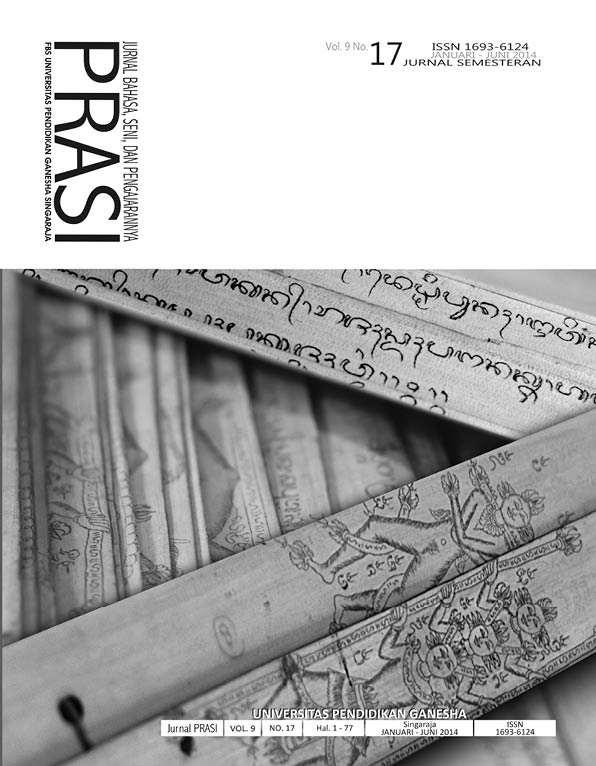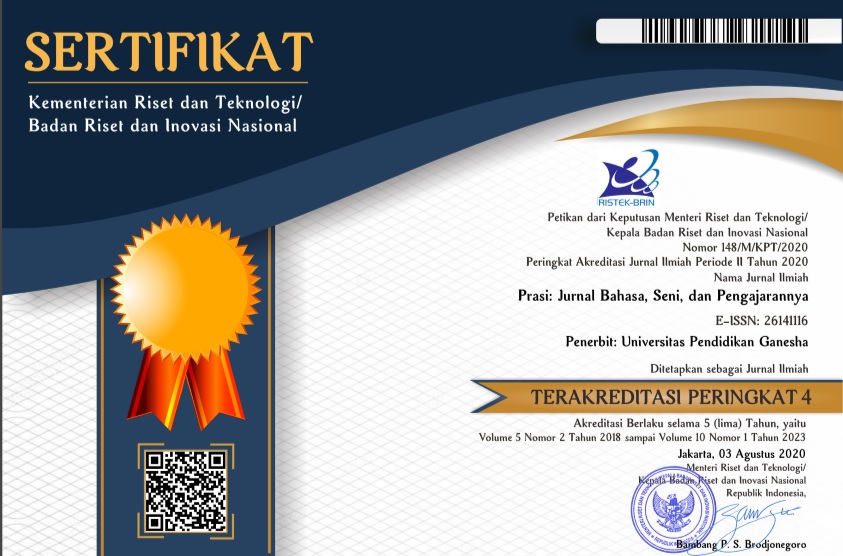PEMILIHAN METODE DAN MODEL PEMBELAJARAN BAHASA INDONESIA BERDASARKAN TUNTUTAN KURIKULUM 2013 (KAJIAN KONSEPTUAL PEMBELAJARAN BAHASA INDONESIA DI SMA)
DOI:
https://doi.org/10.23887/prasi.v9i17.8927Abstract
The present study was library research aimed at finding out and conceptually considering Indonesian language learning models that are relevant to the contents demanded in 2013 Curriculum and its classroom implementation principles. The study results concluded that effective learning of Indonesian language as demanded by 2013 Curriculum must develop two modes of learning process, i.e. indirect learning process and direct learning process. The two modes of learning process must be implemented integratedly. To attain effectiveness of genre-based Indonesian learning with scientific approach, needed are learning methods and models that can accommodate the implementability of the approach in the learning process. Learning methods and models that are considered as being able to accommodate the scientific steps in the learning process as demanded by 2013 Curriculum are Discovery-Based Learning, Project-Based Learning, and Problem-Based Learning. Related to the learning models, Indonesian language instruction with scientific approach begins with the preparation of lesson plan developed by teachers either individually or in group by referring to the syllabus and course book. In this case, the three models are seen as being very effective in supporting the attaintment of all competencies contained in 2013 Curriculum integratedly.
Key words: learning models, 2013 Curriculum
Downloads
Published
Issue
Section
License
Authors who publish with Prasi agree to the following terms:- Authors retain copyright and grant the journal the right of first publication with the work simultaneously licensed under a Creative Commons Attribution License (CC BY-SA 4.0) that allows others to share the work with an acknowledgment of the work's authorship and initial publication in this journal
- Authors are able to enter into separate, additional contractual arrangements for the non-exclusive distribution of the journal's published version of the work (e.g., post it to an institutional repository or publish it in a book), with an acknowledgment of its initial publication in this journal.
- Authors are permitted and encouraged to post their work online (e.g., in institutional repositories or on their website) prior to and during the submission process, as it can lead to productive exchanges, as well as earlier and greater citation of published work. (See The Effect of Open Access)


.png)
.png)









